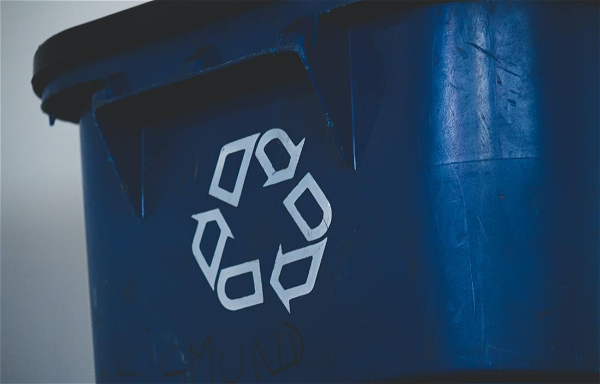EU4Environment fights for waste reduction in the EaP region

Industrial development is a widely perceived global engine for growth. However, without systematically pairing it with sustainable development, it only exacerbates the current trends of global linear consumption, advancing climate emergency, massive and unsustainable consumption of resources, and population growth. To decouple economic growth and social well-being from environmental degradation and unsustainable development, alternatives such as the application of the principles and practices of Circular Economy are required for industries and society alike.
Circular Economy is an industrial economy which returns products, parts, resources, and materials into use several times. Based on the precepts that products can be designed to last, that their value can be maintained for as long as possible, and the generation of waste from their production could be minimised, Circular Economy provides a substantial contribution to addressing the global climate crisis, and advances the achievement of the Sustainable Development Goals (SDGs).[1]
In this sense, the United Nations Industrial Development Organization (UNIDO) plays an active role in mobilizing finance, technology, and capacity-building to promote Circular Economy principles and practices in developing countries. These principles are applicable to all economies, regardless of their level of industrialization, and all actors alike (governments, businesses, and consumers). UNIDO promotes the concept that every product, its parts, and materials circulating in our economies should have multiple lives, helping retain their value in the economy, and creating new business opportunities while safeguarding the environment.
To this scope, recycling plays a role in the transition towards a Circular Economy. By turning waste into new resources and reintroducing them into the production chains, recycling ensures that industries intensify the use of resources and contribute to recovery of materials. This, in turn, provides economic opportunities together with environmental and social benefits.[2]
As a main driver for circularity, UNIDO promotes change in the design and production practices of industries and manufacturers. Upon a closer look into the recycling rates of various materials: metals, for example, offer the possibility of indefinite recycling (about 67% of steel is produced from recycled iron/steel, and about 70% of aluminium is recycled). Other materials have OK-to-good recycling rates, such as post-consumer paper waste (50% recycled), glass (20%), or plastics (where less than 2% being recycled). What is more, only 1% of textile waste resulting from the production of fabrics and garments is properly recycled. 19% is down-cycled (rags, stuffing, etc.), with the remaining majority being incinerated or landfilled.
In response to these sobering numbers, the countries of the Eastern Partnership region, namely Armenia, Azerbaijan, Belarus, Georgia, the Republic of Moldova, and Ukraine, are investing efforts in environment-related actions, unlocking opportunities for greener growth, and setting mechanisms to better manage environmental risks and impacts.
Such efforts are well noted in Azerbaijan. The concept of Circular Economy has been at the core of the recently approved presidential orders, the “National Strategy for the Improvement of Solid Waste Management in the Republic of Azerbaijan for 2018-2022” and “The Action Plan on reducing negative environmental impacts of plastic packaging waste in the Republic of Azerbaijan: 2019-2020”. The two pieces of legislation have led to the amendment of the “Law on the Environment Protection” in November 2020. As a result, the import, manufacturing, and trade of plastic bags (up to 15 microns), as well as single use plastic (forks, spoons, knives, plates, cups) are now prohibited nationwide. The prohibition on plastic bags came into force on January 1, 2021, and from July 1, 2021, the one on the rest of the plastic-related items will follow. Apart from these legal documents, it is also worth mentioning the “Azerbaijan 2030: National Priorities for Socio-Economic Development concept”, which was approved by presidential order on February 2, 2021. Among its key objectives, the Azerbaijan 2030 concept focuses on clean environment and green growth.
In this context, the RECP methodology, a stepping stone in the implementation of Circular Economy practices, becomes one of the main tools for green transformation, providing national businesses with efficient solutions to reduce waste generation. Throughout the EaP region, the EU-funded “EU4Environment” Action ensures that resource efficiency assessments are conducted with close attention to the use of materials (including their source and perspective utility). As an example, in the case of packaging materials, under RECP, their further processing is also considered from the product environmental footprint point of view. In this sense, the RECP methodology provides a firm and structured approach to determine the potential saving of materials, as well as waste reduction (minimization) by avoiding the use of non-recyclable materials.
To ensure the practical application of the ongoing legislation reforms which target waste minimization, improved environmental performance, and, specifically, the reduction of pollution, the “EU4Environment” works directly with manufacturing SMEs and communities in the EaP region. The in-plant RECP audits enable producers and industry staff to improve skills, reconsider waste as a resource, and reduce the overall impact of industries on the environment.
To read the full article, please visit the EU4Environment official website at:
References
[1] https://sustainabledevelopment.un.org/post2015/transformingourworld
